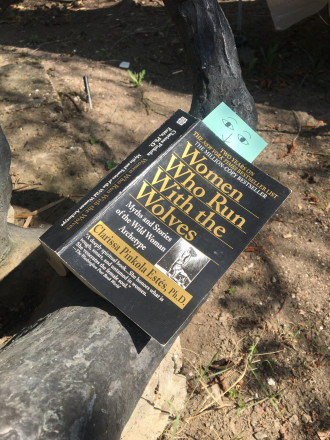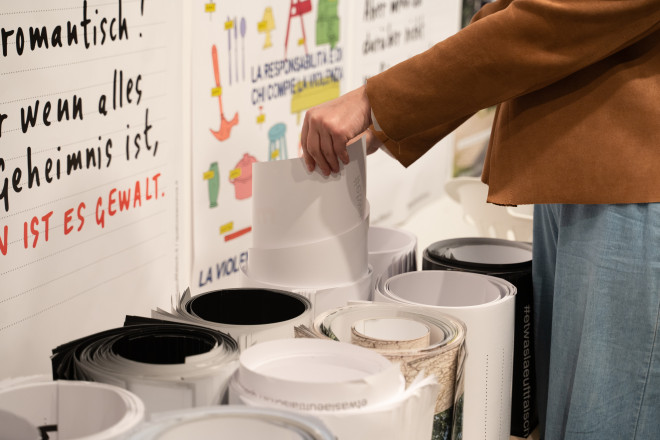Difference as potential
Dialogues on design and architecture as agents of transformation
With this cycle of talks, Lungomare focuses on the idea of the city as social space. We consider the city and its shared places as an instrument able to make visible the transformations that currently take place in our society, as a place of contact and encounter between different cultures and people, a place where difference becomes the protagonist. The three events represent an opportunity for exchange and comparison with both designers and creative collectives, to discuss urban spaces that are transformed and radicalized, with the intention of destabilizing concepts such as “the other”, “identity”, “belonging” and “hospitality”. With this initiative, we want to look at the potential of public space as part of a process of integration and of cultural transformation, as well as looking at socio-structural obstacles and barriers. The three meetings will be attended by designers whose practice is founded on a transdisciplinary collaboration, capable of providing new points of view concerning the present day.
05/04/2018
Zeno Franchini and Francesca Gattello
MARGINAL is a studio made up of two designers who deal with research, exploring the margins of design disciplines and the role they can play in the transformation of societies. MARGINAL uses prototypes, installations, texts and films to investigate and document the production of “object universes” and spaces, and the implications of these on a universal scale. MARGINAL’s practice develops in continuous dialogue with other professions, skills and cultures. Within the logic of design and art, but also in opposition, Zeno Franchini and Francesca Gattello create constructive dissent by experimenting with interaction as a form of social practice and political awareness.
Zeno Franchini – Designer, MA in Social Design at the Design Academy in Eindhoven.
Francesca Gattello – Designer, MA in Product Design at Milan Polytechnic.
MARGNAL Studio participated in:
2016 Todaysart Festival, Den Haag, NL
2016 ETAC Art Residency, La Panacée, Montpellier, FR
2015 AA Visiting School, Vitanje, SLO
2014 Today was Tomorrow, Swiss Pavillion, Venice Architecture Biennale, Venice, IT
MARGINAL Studio exhibited at:
2017 La Triennale Design Museum, Milan, IT
2016 La Panacée, Montpellier, FR
2015 Depot Basel, Basel, CH
2015 Het Nieuwe Instituut, Rotterdam, NL
2015 London Design Festival, London, GB
2015 Kazerne, Eindhoven, NL
2014 Museum Arte Util, Eindhoven, NL
MALGINAL Studio has been nominated for:
2016 Coal Prize, Paris, FR
2016 Keep an Eye Grant, Eindhoven, NL
19/04/2018
The practice of Pablo Calderón Salazar focuses on collaboration with local partners within the different contexts in which his projects are carried out: a blacksmith in Riga, a chocolate maker in Liège, the leader of a community in Utrecht or immigrant workers in the Dutch Nordoostpolder. Salazar interprets with empathy the interests of his interlocutors, using dialogue as the main tool of his practice. Paying attention to the political, economic, social and cultural conditions in which the projects take place, Salazar produces texts, installations, graphics, videos, interventions and objects aimed at provoking a reflection on issues of strong social relevance. He accompanies his critical approach with a proactive drive focused on better forms of coexistence.
Michael Kaethler is a researcher whose focus extends from political science to social anthropology, and from Slavic literature and film to urban planning. He states that he doesn’t identify himself with either the figure of designer or researcher because, not adhering to the context or theoretical framework of these two roles, he prefers to act within different areas assuming different roles that allow him to define “improbable forms of theoretical and practical bricolages“. His research path has led him to dwell on how the diffusion of knowledge can be directed by curatorship – a perspective and practice in which various types of knowledge come together and are mediated and interpreted.
Pablo Calderón Salazar – Designer, and PhD student at the Catholic University of Leuven, as part of the TRADERS project (Training Art and Design Researchers for Participation in Public Space).
Michael Kaethler – Sociologist, Marie Curie Research Fellow and PhD student at the Catholic University of Leuven as part of the TRADERS project (Training Art and Design Researchers for Participation in Public Space).
17/05/2018
“Lampedusa. Image Stories from the Edge of Europe”
Anne König and Emilie Josso
Spector Books’ editorial practice is positioned at the intersection of art, theory and design. This Leipzig publishing house explores the possibilities offered by an active exchange between the different figures involved in the production of a book: artists, authors, book designers, lithographers, printers and bookbinders. The book as medium is transformed into a stage, a meeting place and a productive exchange. In 2017 Spector Books published “Lampedusa. Bildgeschichten vom Rande Europas” (“Lampedusa. Picture stories from the edge of Europe”) by a project belonging to the Migrant Images Research Group of which the publishers themselves are part of, together with the photographer Armin Linke. Today, images are moving in the same way as people, so when Armin Linke was invited to participate in a photographic project on Lampedusa, he left his camera at home. Instead, he brought with him a team from Karlsruhe University, so that they could talk with local photographers about their own photographs. The collected material is contained in the book presented at Lungomare.
Anne König – Editor (Spector Books), Leipzig.
Anne König lives as a publisher and author in Leipzig. Together with Markus Dreßen and Jan Wenzel she founded the publishing house Spector Books in 2001. Together with Armin Linke and the Migrant Image Research Group, she worked on the Photo-Graphic-Novel Lampedusa – Image Stories from the Edge of Europe, published in 2017. She is currently co-curating the 8th Festival for Photography f/stop Leipzig for the second time together with Jan Wenzel.
Emilie Josso – Illustrator based in Bologna.
Emilie Josso is a French illustrator based in Bologna (Italy). She studied illustration in Paris, Bologna and Hamburg. After working with Spector Books on the collaborative research about the representation of Lampedusa island in the media, she is currently working on two comic projects, one Italian and one German. She is conducting historical research by means of archive research and interviews (oral history).
What´s on
EXHIBITION :: Binta Diaw :: Collective Practices – A Living Experience of Feeling ListenedAbout Lungomare
Lungomare, a cultural association founded in Bolzano in 2003, was created from the desire and necessity to open a space in which to share differences, experiences, opinions and desires, a space in which to make the link between cultural production and the political and social dimension. Lungomare undertakes projects that investigate and test possible relationships between design, architecture, urban planning, art and theory, the results of which are presented in different formats: public discussions, conferences, publications, exhibitions and interventions in public spaces. All these formats are characterised by the intention to interact with cultural and socio-political processes relating to the region in which Lungomare is located.
Currently Lungomare’s activities focus on long-term residency projects, a format whereby Lungomare invites guests to engage and interact within the context of South Tyrol. Lungomare’s activities are based on three principles: specific attention to the context in which the association’s projects are undertaken, the transdisciplinary approach that distinguishes these projects, and reflection on the role of Lungomare as a cultural institution in connection with the region in which it operates.
Territory
Lungomare is located at the edge of Bolzano, the capital of South Tyrol, and relates to the context in which it operates, attempting to highlight the dynamics of change. Large urbanized areas alternate with broad areas of intensive cultivation and yet others of picturesque landscape, all of which penetrate the centre of the city. The city is surrounded by mountains and this is one of the reasons why the tourism industry has become a driving force in this locality. The demographic structure of the city has been characterized for a long time by the coexistence of two populations, those speaking German and those speaking Italian. However, the social and demographic composition of Alto Adige Südtirol is changing. Migrants, including those from non-European countries are making their way to the area to settle, whilst others, including political refugees, are flowing through the region.



